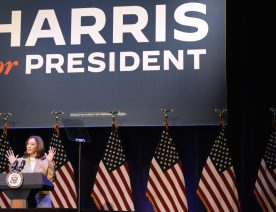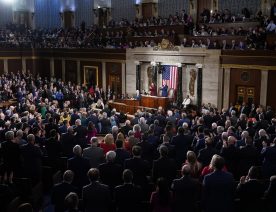
May 14, 2025
Six in 10 adults are pessimistic about the state of politics in the United States and many are doubtful about the future of the political parties and the system of choosing political leaders. Partisan differences arise with Democrats more likely than Republicans to have pessimistic views of the state of politics and the way leaders are chosen.
Republicans are more optimistic about the future of their party than Democrats are about theirs. They also are more likely than Democrats to have positive expectations for how this country’s leaders are selected and for the state of American politics.
Overall, the public has become less pessimistic about the state of politics and the system of choosing leaders. In July 2024, 66% were pessimistic about the state of politics in the country. Now 59% of the public are pessimistic. Forty percent are pessimistic about how the country’s leaders are chosen, down from 47% last July.
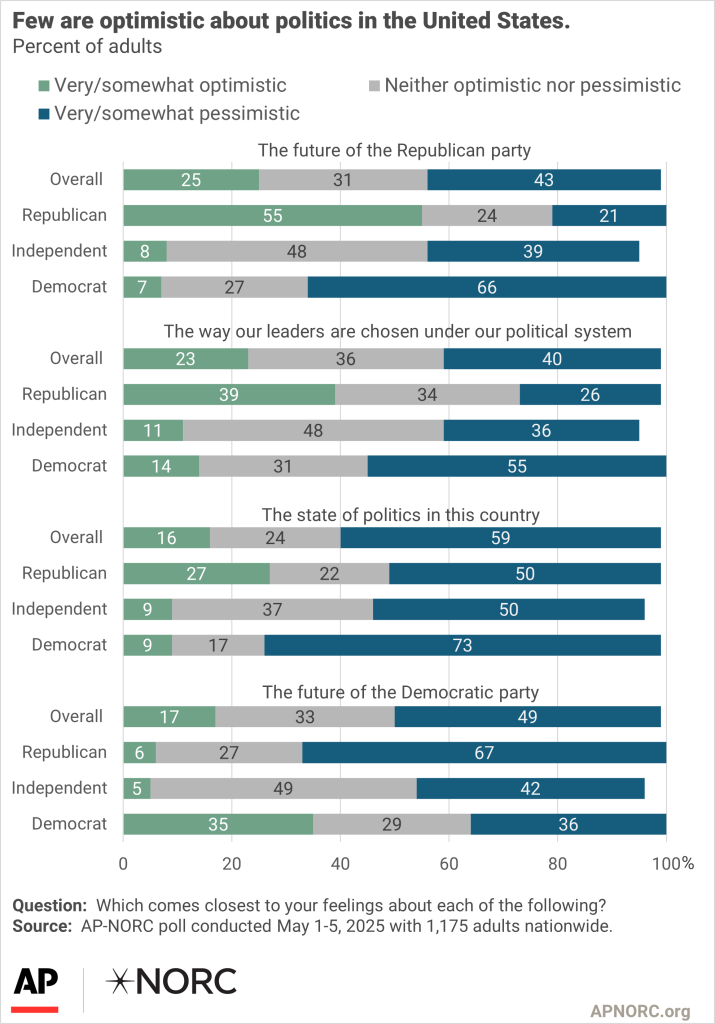
Republicans have grown slightly more optimistic about the future of the Republican Party than they were last summer. In July 2024, 47% said they were optimistic about their party. Now, three months into Donald Trump’s second term, 55% are hopeful about their party’s future.
While half of Republicans are pessimistic about the state of politics in the United States, that is down from 73% last July. And they have grown slightly more optimistic about the way our leaders are chosen under the country’s political system.
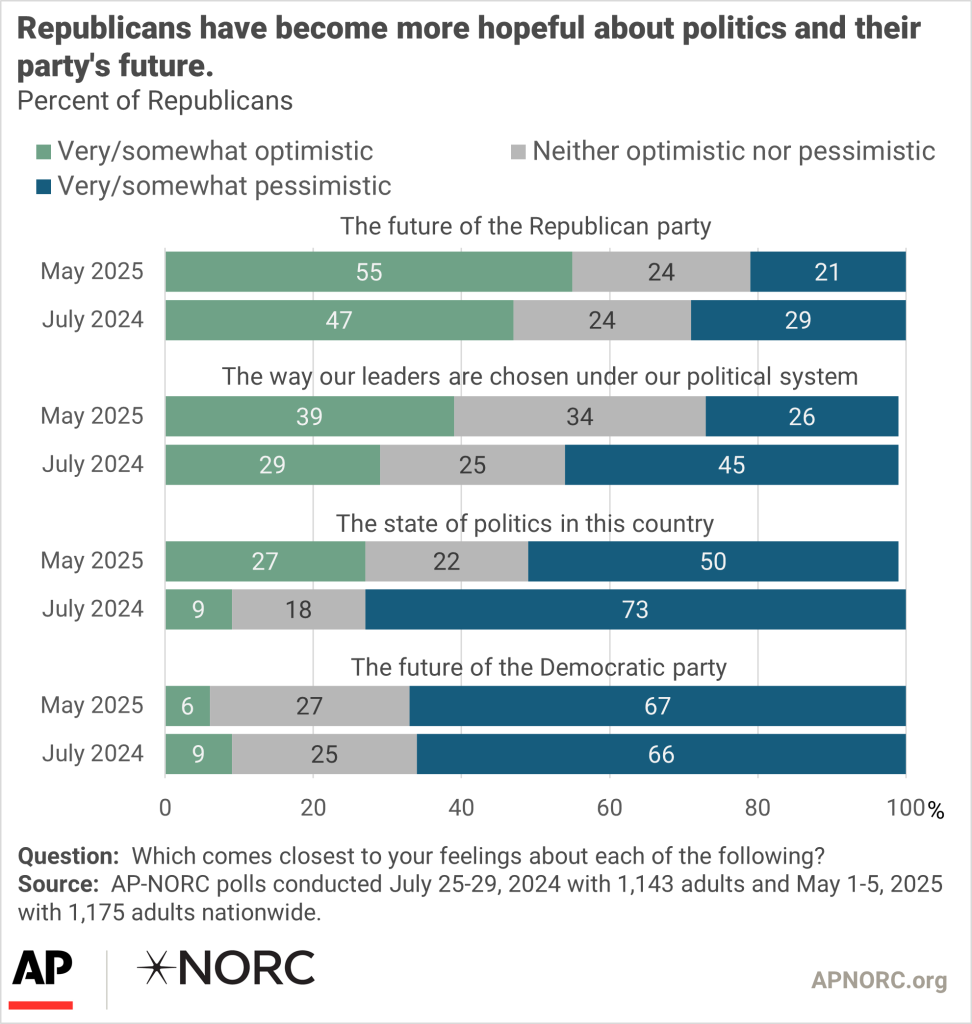
In contrast, Democrats have become more pessimistic about their party’s future, the state of the country’s politics, and the country’s process for choosing political leaders. Only 35% of Democrats say they are optimistic about the future of the Democratic Party, down sharply from 57% in the July 2024 poll.
About 7 in 10 Democrats are pessimistic about the state of politics in this country, up from 60% last summer. And 55% of Democrats are pessimistic about the way our leaders are chosen under our political system, up from last summer when Joe Biden was still in the White House.
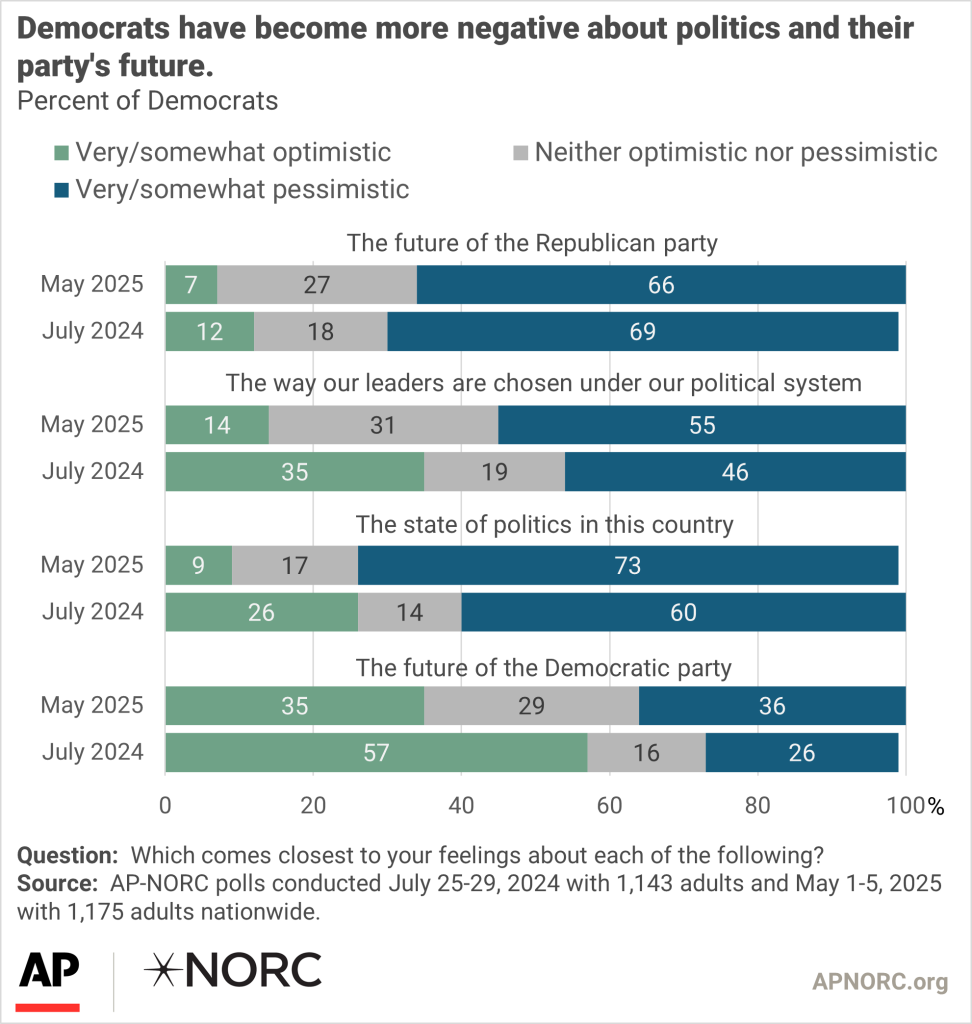
Republicans are just about as favorable toward their party as they were last September, ahead of the election. While Democrats overwhelming still have a favorable opinion of their party, there has been as drop since last September (85% vs 70%).
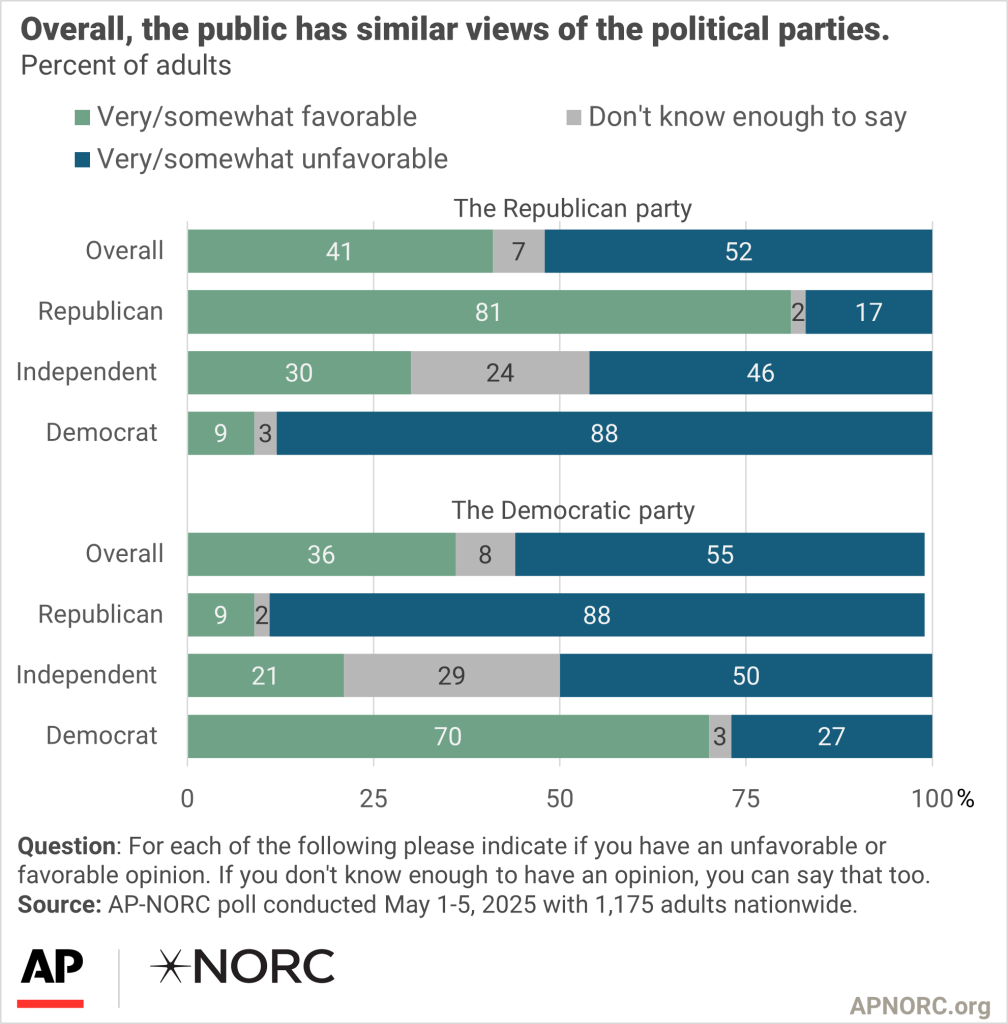
Bernie Sanders and Alexandria Ocasio-Cortez visited Republican strongholds last month. Sanders, the senior senator from Vermont, is an independent but has caucused with Democrats for most of his congressional career. Seventy-five percent of Democrats have a favorable opinion of him, putting his favorability slightly higher than the party overall. Nearly as many Republicans have an unfavorable view.
Fifty-five percent of Democrats have a positive opinion of Rep. Ocasio-Cortez of New York, compared with only 8% of Republicans.
Democrats have become less positive about Chuck Schumer, the Senate Minority leader. Last December, 56% of Democrats had a favorable opinion of Schumer. Opinion of him among Democrats has declined with only 35% of Democrats now holding a favorable opinion.
On the Republican side, most Republicans have a favorable opinion of Secretary of State Marco Rubio, but the same number of Democrats have a negative view. While nearly half of Republicans have a positive view of Mike Johnson, the Speaker of the House, only 9% of Democrats agree. Overall, 44% of adults don’t know enough to have an opinion on the Speaker.
Forty-four percent of Republicans have a favorable view of Defense Secretary Pete Hegseth. Six in 10 Democrats have an unfavorable opinion.
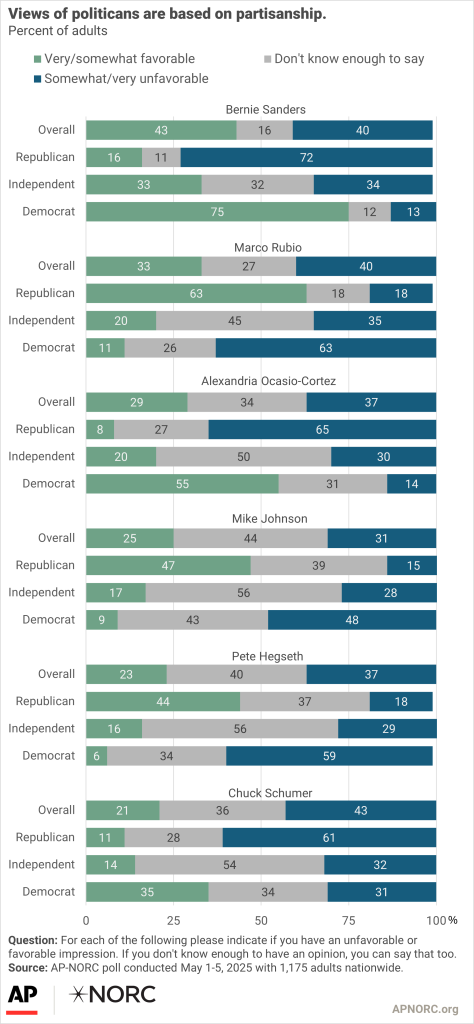
The nationwide poll was conducted May 1-5, 2025 using the AmeriSpeak® Panel, the probability-based panel of NORC at the University of Chicago. Online and telephone interviews using landlines and cell phones were conducted with 1,175 adults. The overall margin of sampling error is +/- 4.0 percentage points.
- Suggested Citation: AP-NORC Center for Public Affairs Research. “Little optimism about politics in the U.S., especially among Democrats” (May 2025). https://apnorc.org/projects/little-optimism-about-politics-in-the-u-s-especially-among-democrats





